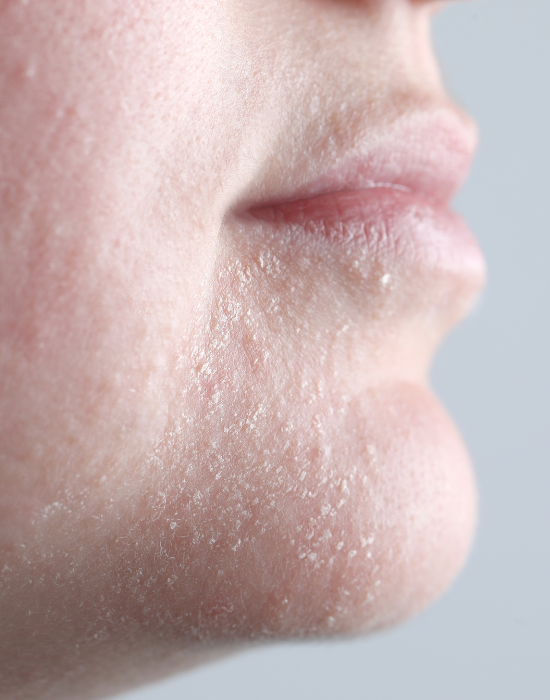Understanding Mild, Moderate, and Severe Dehydration
Dehydration occurs when your body loses more fluids than it takes in, resulting in an imbalance that can disrupt normal bodily functions. From mild discomfort to serious complications, symptoms of dehydration can impact the human body in many ways.
When the body is dehydrated, the skin is often one of the first places to show visible signs. Without sufficient water, skin cells lose volume and elasticity, resulting in dry, tight, flaky, or dull-looking skin. Fine lines and wrinkles may become more pronounced, and the skin may feel rough or sensitive to the touch.
In more severe cases, dehydration can also compromise the skin’s protective barrier, making it more prone to irritation, redness, and breakouts. Over time, chronic dehydration can exacerbate risk factors, potentially affecting blood pressure or leading to kidney failure.
Potential Causes
- Excessive sweating: Losing body fluid through sweat during hot weather, humid weather, or intense physical activity.
- Severe diarrhea or vomiting: Can rapidly result in fluid loss and electrolyte imbalances, especially if not treated quickly.
- Illness: Conditions like a cold or sore throat often reduce appetite and fluid intake, increasing the risk of dehydration.
- Medical conditions: Kidney diseases, urinary tract infections, and chronic dehydration may impair the body’s ability to retain fluids.
- Inadequate fluid intake: Failing to drink water regularly, or being unable to do so due to illness or limited access.
Who is Affected by Dehydration?
While dehydration can affect anyone, certain individuals are at a higher risk of developing moderate to severe dehydration. Infants and young children are especially vulnerable, particularly when experiencing fever, vomiting, or when wet diapers become less frequent. In addition, older adults face an increased risk due to a diminished sense of thirst. Athletes exposed to hot or humid weather without maintaining proper hydration are also at risk, as excessive sweating and insufficient fluid intake can occur.
Services for Mild Dehydration
At Thrive Wellness and Aesthetics, we provide a range of treatments to replace lost fluids, restore hydration, and support your recovery:
IV Therapy
Directly addresses dehydration by delivering fluids, electrolytes, and nutrients intravenously for rapid rehydration and replenishment.
Nutraceutical Supplements
May support hydration indirectly by improving overall cellular function and replenishing essential vitamins and minerals lost due to dehydration.
HydraFacial
Deeply cleanses, exfoliates, and infuses the skin with hydrating serums, making it excellent for improving dry, dull, or dehydrated skin.
Chemical Peels
Can help improve skin texture and allow for better absorption of moisturizers and hydrating products post-treatment.
PRP for Skin Rejuvenation
Stimulates collagen and improves skin tone and texture, helping the skin retain moisture better over time.
Microneedling and Facial Microneedling with PRP
Enhances skin’s ability to absorb hydrating serums, boosts collagen, and improves moisture retention.
ZO Skin Health
Medical-grade skincare products designed to support the skin barrier, improve moisture retention, and maintain healthy, hydrated skin between treatments.
Where to Get Started
If you’re experiencing symptoms or are at risk for dehydration, Thrive Wellness and Aesthetics offers effective, medically supervised rehydration solutions. Whether you’ve been in the sun too long, are recovering from illness, or simply haven’t had enough fluids, contact us today to learn how to protect your body from severe dehydration.
Frequently Asked Questions
What should I drink to treat dehydration?
Is dehydration common in hot weather?
How can I prevent dehydration?
Dana Protomastro, AGPCNP-BC, is a certified primary care nurse practitioner who is a proven leader in the medical community. She has over 25 years of experience delivering exceptional care with a holistic approach in perioperative care, plastic surgery, and aesthetic medicine.
Dana has introduced cutting-edge, non-invasive technologies into her practice as wellness-based alternatives to surgical procedures. She works closely with men and women of all ages to determine the best treatment method for their individual needs. Some of her specialties include laser treatments, micro needling, Botox, fillers and the integration of skincare products.





 Explore Our
Explore Our